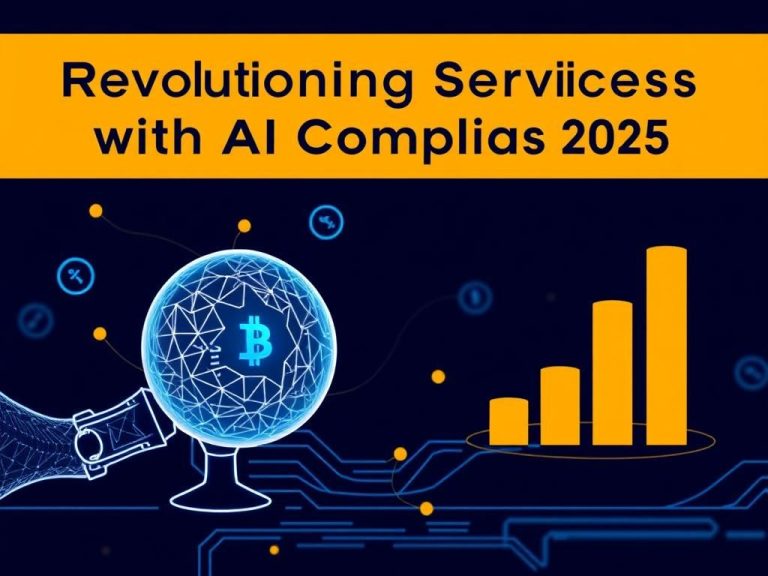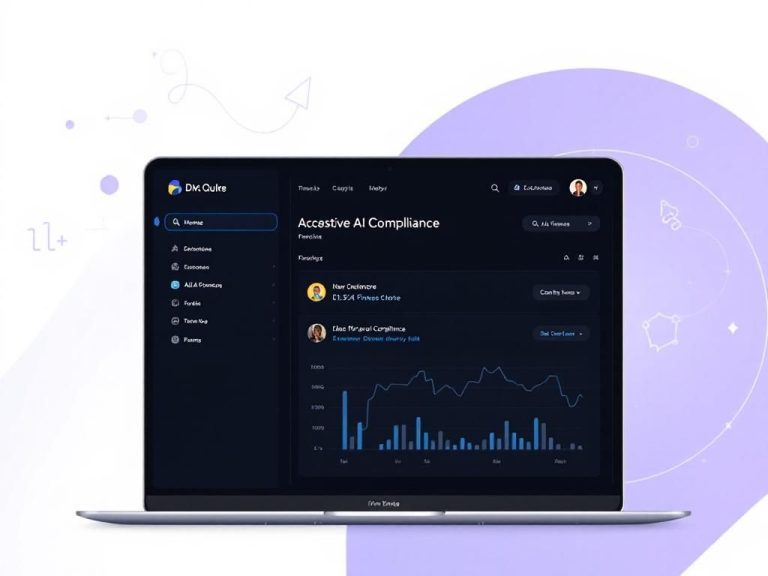In an era where financial regulations are constantly evolving and becoming increasingly complex, the use of Artificial Intelligence (AI) tools in compliance is transforming the landscape of the finance sector. Organizations are under relentless pressure to ensure adherence to ever-changing rules while maintaining operational efficiency. AI not only streamlines compliance processes but also enhances accuracy, reduces costs, and mitigates risks. This article explores the various ways AI is revolutionizing compliance within the finance industry, highlighting key technologies, benefits, and challenges.
The Role of AI in Financial Compliance
AI technologies are making significant inroads into compliance by automating repetitive tasks, analyzing vast amounts of data, and providing actionable insights. Some critical applications include:
- Data Analysis: AI tools can process large datasets quickly, identifying patterns and anomalies that may indicate compliance risks.
- Risk Management: Machine learning algorithms can predict potential compliance breaches and help in proactive risk management.
- Document Verification: Natural Language Processing (NLP) enables the automation of document verification processes, ensuring documents meet regulatory standards.
Key AI Technologies in Compliance
Several AI technologies are particularly relevant to enhancing compliance in the finance sector:
Machine Learning
Machine learning algorithms learn from historical data to predict future trends. In compliance, it can help in:
- Identifying fraudulent activities through anomaly detection.
- Assessing credit risk by analyzing borrower behaviors and repayment histories.
- Predicting regulatory changes based on historical compliance data.
Natural Language Processing (NLP)
NLP allows computers to understand and interpret human language. Its applications include:
- Automating Reporting: Automating the generation of compliance reports by extracting relevant information from unstructured data sources.
- Regulatory Monitoring: Keeping track of regulatory updates by analyzing documents and news articles.
Robotic Process Automation (RPA)
RPA allows organizations to automate routine tasks without human intervention. Key benefits include:
| Benefit | Description |
|---|---|
| Cost-Effective | Reduces costs by minimizing manual labor. |
| Efficiency | Increases operational efficiency by speeding up processes. |
| Accuracy | Enhances accuracy by eliminating human error. |
Benefits of AI in Compliance
Adopting AI tools in compliance offers numerous advantages:
Enhanced Efficiency
AI can process and analyze data far quicker than human counterparts, enabling faster decision-making.
Cost Savings
By reducing manual labor and streamlining processes, organizations can significantly cut compliance costs.
Improved Accuracy
AI reduces the likelihood of human errors, leading to more accurate compliance data and reports.
Proactive Risk Management
AI’s predictive capabilities allow organizations to anticipate compliance risks and mitigate them effectively.
Challenges in Implementing AI for Compliance
Despite its many benefits, implementing AI in compliance is not without challenges:
Data Privacy Concerns
Handling sensitive financial data raises significant privacy concerns, and organizations must ensure compliance with data protection regulations.
Integration Issues
Integrating AI tools with existing systems can be complex and may require significant investment in time and resources.
Skill Gaps
The lack of skilled professionals who can effectively implement and manage AI technologies is a barrier for many organizations.
Future Prospects of AI in Financial Compliance
The future of AI in financial compliance looks promising, with several trends on the horizon:
- Increased Automation: As AI technology continues to evolve, more tasks will be automated, leading to even greater efficiencies.
- Enhanced Collaboration: AI tools will facilitate better collaboration between compliance and other departments, providing a holistic approach to risk management.
- Real-Time Monitoring: The development of advanced AI tools will enable organizations to monitor compliance in real-time, allowing for immediate corrective actions.
Conclusion
AI tools are set to revolutionize compliance in the finance sector, providing organizations with the means to navigate the complex regulatory environment efficiently. By harnessing the power of AI, financial institutions can not only stay compliant but also improve their overall operational effectiveness. As these technologies continue to advance, the potential for AI in compliance will only grow, paving the way for a more secure and efficient financial system.
FAQ
What are AI tools for finance compliance?
AI tools for finance compliance are software solutions that utilize artificial intelligence to automate and enhance regulatory compliance processes within financial institutions.
How can AI improve compliance in the finance sector?
AI can improve compliance in the finance sector by automating data analysis, detecting anomalies, streamlining reporting processes, and ensuring adherence to changing regulations.
What are the benefits of using AI for financial compliance?
The benefits of using AI for financial compliance include increased efficiency, reduced human error, real-time monitoring, and the ability to handle large volumes of data quickly.
Are AI compliance tools cost-effective for financial institutions?
Yes, AI compliance tools can be cost-effective for financial institutions by reducing the need for extensive manual processes and minimizing the risk of regulatory fines.
What types of compliance tasks can AI tools handle?
AI tools can handle various compliance tasks including transaction monitoring, risk assessment, fraud detection, and regulatory reporting.
How do AI tools stay updated with changing regulations?
AI tools stay updated with changing regulations through continuous learning algorithms and integration with regulatory databases to ensure compliance with the latest standards.




